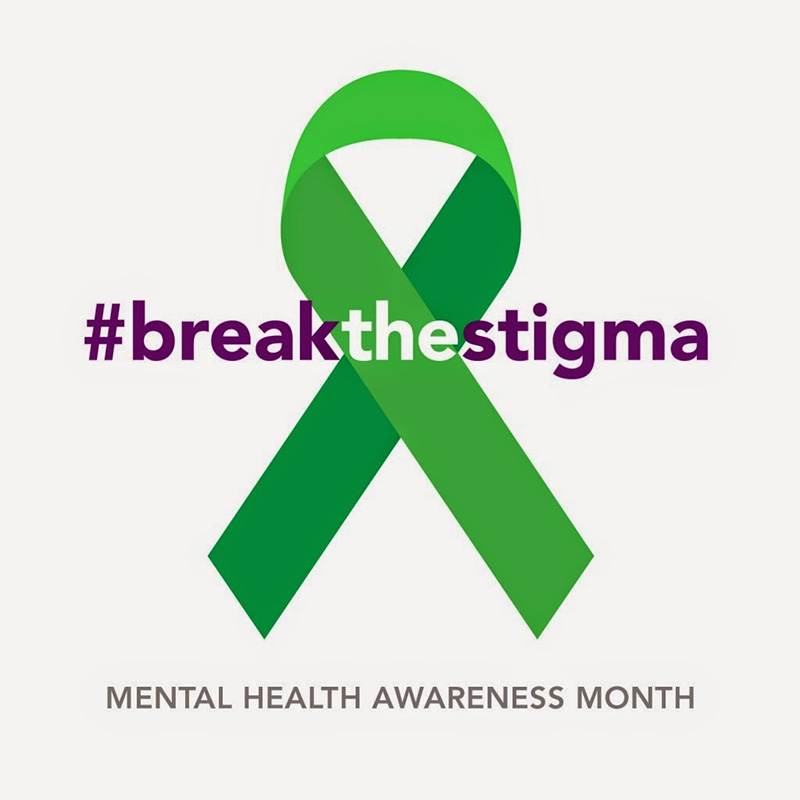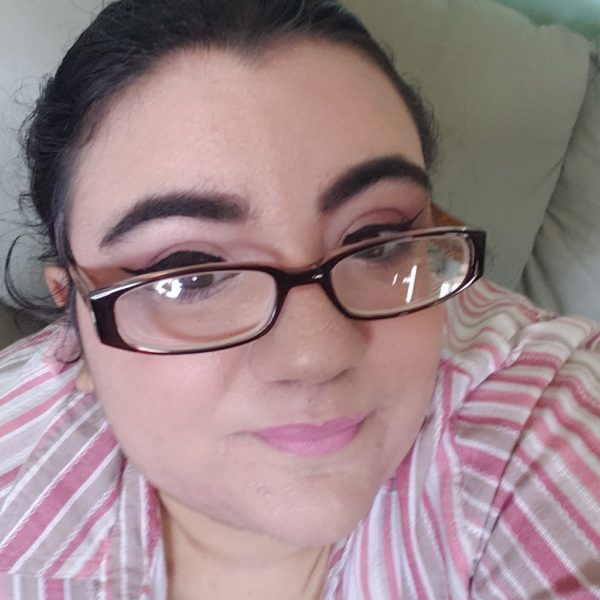What are Psychotic Disorders (PD)?
Psychotic disorders are severe disorders that cause abnormal thinking and perceptions. People with a PD easily lose touch with reality. They can easily put themselves in a “dream state” when they experience a trigger, usually stress or anger.
Schizophrenia
SCHIZOPHRENIA is a chronic brain disorder that, if left untreated, can develop long and persistent “PSYCHOTIC EPISODES,” where they become unresponsive and can’t control their actions. These are triggered by stress, loneliness, depression, remorse, anger, and other negative emotions.
- Positive symptoms (present): Hallucinations (seeing things or hearing voices that don’t exist), paranoia, and exaggerated or distorted perceptions, beliefs, and behaviors.
- Negative symptoms (absent): A loss or a decrease in the ability to initiate plans, speak, express emotions, or find pleasure.
- Disorganized symptoms: Confused and disordered thinking/speech, trouble with logical thinking, and sometimes bizarre behavior or abnormal movements.
Symptoms usually appear during early adulthood and must persist for at least 6 months. Males often experience symptoms in their late teens and early 20s, while females experience symptoms in their 20s and early 30s.
Risk Factors: Schizophrenia is mainly linked to genetic and environmental factors. Such factors include abuse, bullying, neglect, abandonment, relationship issues, and career and/or academic issues.
Rehabilitation and Treatment: A variety of ANTIPSYCHOTIC MEDICATIONS are effective at reducing symptoms and help reduce the potential for future episodes. Psychological treatments, such as cognitive behavioral therapy or supportive psychotherapy, may reduce symptoms and enhance function, and other treatments are aimed at reducing stress, supporting employment, or improving social skills. However, people with schizophrenia have an extremely high chance of misusing the drugs prescribed to them. That’s why many patients must be monitored by psychiatrists in a mental institution for at least 1 year.
Bipolar Disorder
BIPOLAR DISORDER, or simply known as just bipolar, is a brain disorder that causes changes in a person’s mood, energy, and ability to function. People with bipolar experience intense emotional states that typically occur during distinct periods of days to weeks, called MOOD EPISODES. Mood episodes are classified as either MANIC/HYPOMANIC (abnormally happy or irritable mood) or DEPRESSIVE (sad mood). Bipolar is a category that includes 3 different diagnoses: BIPOLAR I, BIPOLAR II, AND CYCLOTHYMIC DISORDER.
Bipolar I Disorder: A person experiences a manic episode. Some people may also experience depressive or hypomanic episodes.
Manic Episode: A period of at least 1 week where patients are extremely high-spirited or irritable for most of the day for most days, possesses more energy than usual, and experiences at least 3 of the following behavioral changes:
- Decreased need for sleep
- Increased or faster speech
- Uncontrollable racing thoughts or quickly changing topics
- Distractibility
- Increased activity
- Increased risky behavior
Hypomanic Episode: These episodes are characterized by less severe manic symptoms that need to last only 4 days in a row rather than a week.
Depressive Episode: A period of at least 2 weeks in which a person has at least 5 of the following symptoms (including 1 of the first 2):
- Intense sadness or despair
- Loss of interest in activities that were once enjoyable
- Feelings of worthlessness or guilt
- Fatigue
- Increased or decreased sleep
- Increased or decreased appetite
- Restlessness or slowed speech or movement
- Difficulty concentrating
- Frequent thoughts of death or suicide
Treatment and Management: Medication is the cornerstone of bipolar treatment, though psychotherapy can help patients as well. “MOOD STABILIZERS” are the most prescribed medications for bipolar. They correct imbalanced brain signaling. Because bipolar is a chronic illness, ongoing preventive treatment is recommended.
In some cases, ECT (ELECTROCONVULSIVE THERAPY) may be used in situations where previous treatments were unhelpful. Since bipolar can easily cause serious disruptions in a person’s daily life and create a stressful familysituation, family members may also benefit from professional resources (mental health advocacy and support groups) to help learn strategies for coping, actively participating in treatment, and obtaining support.
Bipolar II Disorder: Bipolar II requires someone to have at least 1 depressive episode and 1 hypomanic episode. People with bipolar II frequently have other disorders such as anxiety or substance use disorder, the latter of which can develop symptoms of depression or hypomania.
Treatment: Like bipolar I, medication and psychotherapy are used. The most used medications are mood stabilizers and antidepressants, depending on the symptoms.
Cyclothymic Disorder: Cyclothymia is a milder form of bipolar involving many mood swings with hypomania and depressive symptoms that occur frequently. Symptoms include the following:
- For at least 2 years, many periods of hypomanic and depressive symptoms, but the symptoms do NOT meet the criteria for episodes.
- During the 2-year period, the symptoms have lasted for at least half the time and never stopped for more than 2 months.
Treatment: This can involve medication and psychotherapy. For many, psychotherapy can help with the stresses of mood swings. Keeping a mood journal can be an effective way to observe patterns in mood function. People with cyclothymia may start and stop treatment over time.
Personality Disorders (PD)
PDs are a way of thinking, feeling, and behaving that deviates from the expectations of the culture, causes distress or problems functioning, and lasts overtime. PDs are long-term patterns of behavior and inner expectations that significantly differ from what’s expected. There are 10 types of PD. The pattern begins by late adolescence and early adulthood. PDs affect at least 2 of these areas:
- Way of thinking about oneself and others
- Way of responding emotionally
- Way of relating to others
- Way of controlling one’s behavior
Types of PD:
Antisocial PD: A pattern of disregarding or violating the rights of others. Someone with Antisocial PD may not conform to social norms, may repeatedly lie or deceive others, or may act impulsively.
Avoidant PD: A pattern of extreme shyness, feelings of inadequacy, or extreme sensitivity to criticism. People with Avoidant PD may be unwilling to get involved with others unless they’re certain of being liked, be preoccupied with being criticized or rejected, or may view themselves as not being good enough or socially inept.
Borderline PD: A pattern of instability in personal relationships, intense emotions, poor self-image, and impulsivity. People with Borderline PD may go to great lengths to avoid being abandoned, may have repeated suicide attempts, may display inappropriate intense anger, or may have ongoing feelings of emptiness.
Dependent PD: A pattern of needing to be taken care of and submissive or clingy behavior. People with Dependent PD may have difficulty making decisions without reassurance or may feel uncomfortable or helpless when alone because of fear of inability to take care of themselves.
Histrionic PD: A pattern of excessive emotion and attention seeking. People with Histrionic PD may be uncomfortable when they’re not the center of attention, may use physical appearance to draw attention to themselves, or may have rapidly shifting or exaggerated emotions.
Obsessive-compulsive PD: A pattern of preoccupation with orderliness, perfection, and control. People with OCPD may be overly focused on details or schedules, may work excessively not allowing time for leisure or friends, or may be inflexible in their mortality and values. (This is NOT the same as OCD)
Paranoid PD: A pattern of being suspicious of others and seeing them as mean or spiteful. People with Paranoid PD often assume people with harm or deceive them and don’t confide in others or become close to them.
Schizoid PD: A pattern of being detached from social relationships and expressing little emotion. People with Schizoid PD typically don’t seek close relationships, choose to be alone, and seem to not care about praise or criticism from others.
Schizotypal PD: A pattern of being very uncomfortable in close relationships and having distorted thinking and eccentric behavior. People with Schizotypal PD may have odd beliefs or odd or peculiar behavior or speech or may have excessive social anxiety.
Treatment for PD:
Certain types of psychotherapy are used for treating PD. Common types include:
- Psychoanalytic/Psychodynamic therapy
- Dialectical behavior therapy
- Cognitive behavioral therapy
- Group therapy
- Psychoeducation
There are no medications to specifically treat PDs. However, medications, such as antidepressants, anti-anxiety medications, and mood stabilizing medications, may be helpful in treating the symptoms. In addition to having a treatment plan, some self-care and coping strategies can be helpful for people with PDs.
- Learn about the condition
- Get active
- Avoid drugs and alcohol
- Get routine medical care
- Join a support group
- Write in a journal
- Try relaxing and stress management techniques
- Avoid becoming isolated
Psychopathy vs Sociopathy
Common features of a psychopath and a sociopath lie in the shared diagnosis: Antisocial PD. Clues to psychopathy and sociopathy are usually available during childhood. These behaviors are called “CONDUCT DISORDERS.” Conduct disorders involve 4 categories:
- Aggression to people and animals
- Destruction of property
- Deceitfulness and theft
- Serious violations of laws and rules
Psychopathic: Psychopathy may be caused by genetic predisposition, meaning it was passed down from relatives. Psychopaths have a hard time forming real emotional attachments with others. Instead, they form artificial, shallow relationships designed to be manipulated in a way that benefits the psychopath. People are seen as pawns to be used to forward the psychopath’s goals. Psychopaths rarely feel any guilt regarding any behaviors, no matter the effects it will have. Psychopaths may commit carefully planned out crimes, such as murder.
Sociopathic: Sociopathy is caused by environmental factors. Sociopaths are impulsive and erratic in their behavior. While also having difficulties in forming attachments with others, some may be able to form attachments with a like-minded group or person. Sociopaths may become easily agitated or angered, resulting in violent outbursts. Sociopaths may commit impulsive, unplanned acts with no regard of the consequences or risks that will happen after.
All of these PDs can lead to psychopathy or sociopathy, especially if left untreated! It is always best to seek help as early as possible. If you or anyone you know is experiencing any of these PDs, the symptoms, or may be on the road to psychopathy/sociopathy, contact help immediately.
Herkimer College Counseling Center:
Personal counseling is available on campus. It is free and confidential. To make an appointment, call the Counseling Center at (315) 574-4034, email them at [email protected], or stop by the office located in CA 130.
Hotlines:
Emotional Support Helpline: 1-844-863-9314 (8AM-10PM, 7 days a week)
National Alliance on Mental Illness (NAMI): 1-800-950-6264 (10AM-6PM, Mon-Fri)
National Institute of Mental Health (NIMH): (866) 615-6464 (8:30AM-5PM, Mon-Fri)
National Suicide Prevention Hotline: 1-800-273-8255 (24 hours a day, all week)
Boys Town National Hotline: 1-800-448-3000 (24 hours a day, all week)
Crisis Text Line: Text “HOME” to 741-741 (24 hours a day, all week)
Substance Abuse and Mental Health Services Administration (SAMHSA): (800) 662-4357 (24 hours a day, all week)
Resources:
American Psychiatric Association: https://apafdn.org/
American Psychological Association: https://www.apa.org/topics
National Awareness on Mental Illness: https://www.nami.org/Home
BetterHelp Private Counselling: www.betterhelp.com
Mental Health America: www.mhanational.org
Psychology Today Locator: www.psychologytoday.com/us *hover over “Find a therapist” and choose what you want to locate*
Grouport Online Group Therapy: www.grouporttherapy.com
Sources:
Torres, Felix. (2020, August). Schizophrenia. What is Schizophrenia? Retrieved October 14, 2021, from https://www.psychiatry.org/patients-families/schizophrenia/what-is-schizophrenia
Howland, Holly. El Sehamy, Alex. (2021, January). Bipolar Disorder. What is bipolar disorder? Retrieved October 14, 2021, from https://www.psychiatry.org/patients-families/bipolar-disorders/what-are-bipolar-disorders
Robitz, Rachel. (2018, November). Personality Disorders. What are Personality disorders? Retrieved October 14, 2021, from https://www.psychiatry.org/patients-families/personality-disorders/what-are-personality-disorders
Mental Health America of Eastern Missouri. (2021). Psychopathy vs Sociopathy. Retrieved October 14, 2021, from https://www.mha-em.org/im-looking-for/mental-health-knowledge-base/conditions/127-psychopathy-vs-sociopathy


 by
by 

